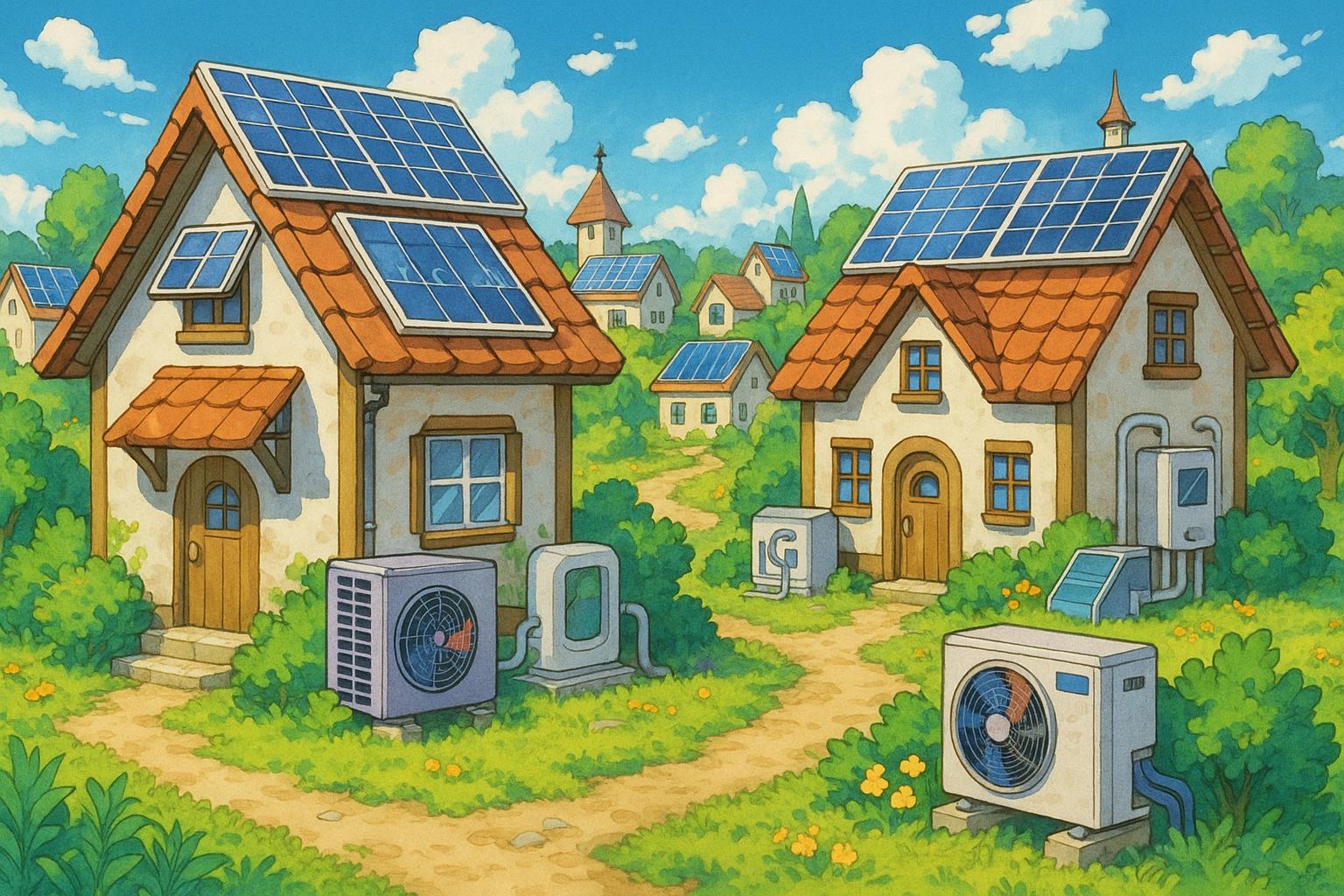At a time when the climate crisis looms large on the global agenda, a quaint model village in Hampshire is making an unexpected bid to showcase a sustainable future. Southsea Model Village, originally opened in 1956, has been transformed into a miniature renewables kingdom named "Sunshine Place." Spearheaded by Good Energy, this retrofitted installation aims to demonstrate practical renewable energy solutions while also advocating for crucial policy reforms around solar energy in the UK.
Alan Budgen, who has gained recognition for his innovative approach to renewable energy, played a pivotal role in the project. Acknowledging the challenges of creating functional models, Budgen crafted heat pumps and solar panels that, while not made of metal, effectively illustrated the concept. “I knew that trying to make a detailed heat pump, and to make a lot of them, would be really difficult,” he remarked. His clever use of printable materials has resulted in an installation that is considerably more accessible for the public and policymakers alike, bringing to life the vision of a sustainable community.
Good Energy's CEO, Nigel Pocklington, emphasised the importance of tackling misconceptions surrounding renewable energy in older properties. As he explained, about 40% of the company's work involves retrofitting traditional homes with heat pumps and solar panels, challenging the belief that such technologies are only suitable for modern constructions. Pocklington described Sunshine Place as a vehicle for change, saying, “We were big proponents of the sunshine bill,” referring to the now-rejected government proposal to require solar panels on new homes by 2026. He remains hopeful, however, citing reports that suggest a similar policy could still be on the horizon by 2027.
Indeed, as the UK government aims to build 1.5 million new homes in the coming years, the potential for solar energy generation is significant. Good Energy estimates that mandatory solar panel installation could add 6 gigawatts to the National Grid, enough to power an additional 1.1 million homes. This aligns with broader legislative shifts as the UK government prepares to ban gas heating systems in new homes by 2027, compelling builders to employ electric heat pumps or further renewable technologies instead. Yet, this ambition is not without its challenges; industry voices express concerns about the impact on housing costs and timelines, advocating instead for more manageable targets like a 20% solar coverage requirement.
In addition to advocating for solar panels, Good Energy's campaign extends to calling for a re-evaluation of electricity taxation, aiming to lessen the financial burden on households transitioning to greener energy solutions. Pocklington pointed out that current electricity costs are disproportionately high, stating, “Electricity is artificially expensive compared to gas, so find somewhere else to put those taxes.” The company also stresses the need for targeted assistance to help lower-income households access renewable energy options.
Echoing this ethos of community-led initiatives, Steve Mewes, chair of Green Wedmore, highlighted the potential of model projects like Sunshine Place to inspire real change across the UK. His efforts in Somerset, which include solar farms and initiatives aiming to install solar panels on community buildings and homes, exemplify how local action can complement national policy.
As this whimsical model village continues to champion the ideals of sustainable living, it invites visitors to imagine a future where renewable energy is seamlessly integrated into everyday life. By combining playful presentation with serious policy advocacy, Sunshine Place serves as a hopeful beacon in the pursuit of a greener, more inclusive energy landscape.
Reference Map
- Paragraphs 1, 2, 3, 4, 5, 6
- Paragraphs 1, 2, 3, 4
- Paragraphs 4, 6
- Paragraphs 1, 2, 3
- Paragraphs 4, 5, 6
- Paragraph 5
- Paragraphs 4, 5
Source: Noah Wire Services
